#bad tradecraft
Explore tagged Tumblr posts
Text

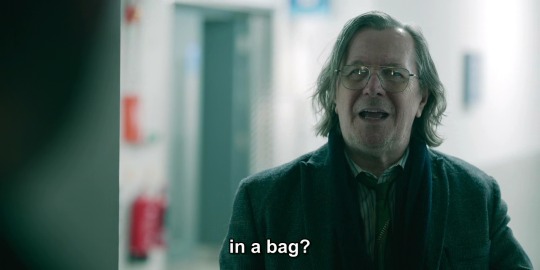
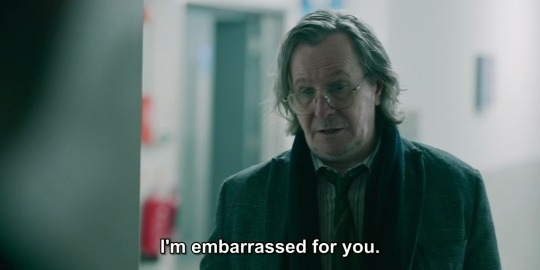
#he's not just embarrassed he's disgusted#Slow Horses#Bad Tradecraft#Jackson Lamb#Gary Oldman#Danny watches Slow Horses
25 notes
·
View notes
Text
S1e3 Bad Tradecraft *updated*
While there is no DIRECT Standish/Lamb interaction this episode, there is mention of… - so let's see what's going on this episode!!
Jumping into the episode… about 2/3 through, Lamb and Taverner are sitting on a bench next to the canal. it’s past 2 am and they both look exhausted after trying to press each other’s buttons and finding out what the other knows without giving up anything themselves.
Taverner sighs… then tries to work the ONLY angle she knows works on Lamb… every time… Standish.
Was Moody alone when he died? – Taverner
We’re all alone in the end, don’t you think Diana. In those final moments… – Lamb
If he did have company, that company might come under intense scrutiny. – Taverner
By all means, call in the Dogs. And when they’re finished tearing you apart, maybe they’ll have enough strength to pick at the rest of this. Either way I couldn’t give a monkey’s – Lamb
Even if it was Standish? – Taverner

*This gets Lamb’s attention, and he looks at her the moment she mentions Standish, he’s seems upset, frustrated maybe, that she knows what to say… Lamb should have no weaknesses, no favorites, and yet… Taverner goes right for the jugular when she makes any type of threat against Standish. His reaction seems visceral*
You’re tossin’ darts. Standish wasn’t there. She’s at home asleep. – Lamb
I’m not talking about tonight. I’m talking about the night Charles Partner died. Catherine Standish came very close to a treason charge. That file could be reopened, reassessed. – Taverner
*Lamb is seen shaking his head*
*Another note to say – I always think… how was Standish so surprised at Lamb’s revelation in S3 about Partner being a traitor – when she herself was accused of possible treason after his death? Because Taverner says this time they could make it stick – so it was at least attempted in the past? ... Lamb telling Standish that Partner wasn’t saving her he was (fuckin’) USING her!! – because Partner made it seem like she was doin’ the dirty – which tbh at first I took to mean they were having an affair – but then I realize it’s the trail of treason? That Taverner ends up threatening Lamb with here?... possibly? – open to other interpretations!!*
Didn’t fly then. It won’t fly now. – Lamb
A lot of other things might come out. – Taverner
*Lamb leans in and seems to inflect a bit of a threat in his voice*
That is not a can of worms you want to open. – Lamb
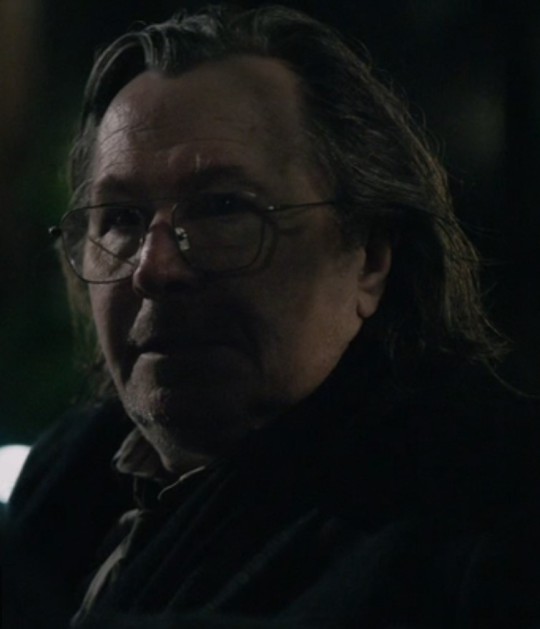
Do I look keen? Like it or not, Slough House is part of this now. You’ll all get turned over. Standish will find out some things it would be better for her not to know. – Taverner
*My personal take on this is that Taverner couldn’t give a monkey’s about what’s better for Standish to know, she just likes having this to dangle over Lamb whenever she wants to manipulate him in some way.*
*Lamb seems resigned to his fate here… leans back, crosses his legs and looks into his own lap, most likely telling himself, this is NOT a weakness, you’re still a badass spy without any feelings or attachments at all, ever…* (giggles)
I’ll go knock on the door for you. But in return, I want the Standish file. – Lamb
*Taverner appears visibly surprised at that request, but appears to nod in acquiescence*
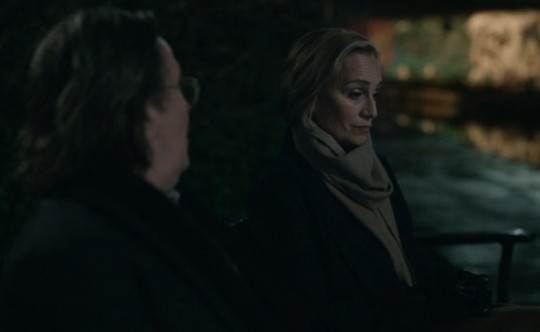
*Lamb makes sure he gets a visible agreement from her before continuing*
And you’ve been using Slough House as your personal toy box, which pisses me off. Are we clear? – Lamb
Crystal. – Taverner
No, there’s more. Moody disappears. Baker, a victim of street crime. Anyone with me tonight is fireproof. Oh! And you are in my debt until you’re in a care home. – Lamb
God, you really care about them, don’t you? – Taverner
Nah. I think they’re a bunch of fucking losers. *pause* But they’re MY Losers – Lamb
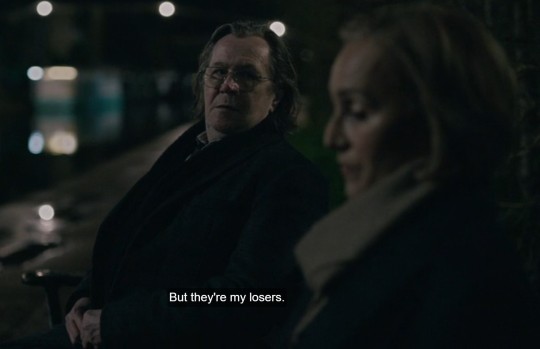
#bad tradecraft#slow horses#slow horses s1#slow horses s1e3#slow horses s1e3 bad tradecraft#jackson lamb#diana taverner#gary oldman#kristen scott thomas#saskia reeves#catherine standish#standish x lamb#lamb x standish#catherine x jackson#jackson x catherine#slow horses spoilers#slow horses series#slow horses fanart#my losers
15 notes
·
View notes
Text

Welp -- I can now confirm, as of finally unlocking it today, that mentor roulette does force Battle Mentor into visibility even when it's otherwise turned off 😂 stapling that crown to their nameplate
#idk plenty of mentors are GREAT#but the bad ones are memorable for pulling some obnoxious things in early game content#(presumably bc theyre trying to speedrun their 2000 roulette achievement honestly)#so i never had that visible aside from certain times that I turn tradecraft mentor on as a goof#(but it looks too similar at a glance lmao or I'd keep it tbh)#anyway though#im not mad about being marked mentor in mentor roulette lmao i just think it's funny that the game goes NO. DISPLAY STATUS.#but yeah!!! long tags aside!! it's unlocked!#every piece of non-savage and non-DT-EX content complete#Abyssal Fracture EX was the Last thing#i did queue once and got p7#i think i wanna glance over some ARR EX guides before I go in on it more though lmaoo
0 notes
Text











Jack Lowden as River Cartwright Slow Horses – S01E03 – Bad Tradecraft
#jacklowdenedit#jlowdenedit#slowhorsesedit#tvedit#appletvedit#jack lowden#river cartwright#slow horses#cinemapix#televisiongifs#userbbelcher#userstream#mine
314 notes
·
View notes
Text










Was Moody alone when he died?
We’re all alone in the end, don’t you think, Diana? In those final moments?
If he did have company, that company might come under intense scrutiny.
By all means, call in the Dogs. And when they’re finished tearing you apart, maybe they’ll have enough strength to pick at the rest of us. Either way, I couldn’t give a monkey’s.
…Even if it was Standish?
Slow Horses | 1.03 Bad Tradecraft 🐌🐎
#oooof#she knows his weak spot#and she will go for it every time#I need to know how everyone seems to know that catherine is jackson’s weak spot APART FROM CATHERINE#he just wants to protect her#he will kill anyone who lays a finger on her#i will never be normal about them#slow horses#catherine standish#jackson lamb#diana taverner#saskia reeves#gary oldman#kristin scott thomas#slow horses season 1
60 notes
·
View notes
Text










Louisa Guy in every episode (15/24) Slow Horses | 1.03 "Bad Tradecraft"

39 notes
·
View notes
Text
Okay you KNOW I have complaints (Gilroy treat the women of color right challenge: impossible), but some notes-scribbled-on-back-of-hand favorite things about the final arc of S2:
Cassian and Melshi and Kay playing space poker and giving each other shit and giggling tipsily, 15/10 no notes
Luthen "The ego that started this fight will never have a mirror or an audience or gratitude" Rael's first response when he knows he's caught: "Do you want to know why?" Dedra (and by extension the ISB) does not in fact give a single fuck. The authorial restraint exhibited in writing him a meaningful sendoff but NOT allowing him the what-radicalized-me speech that all evidence suggests he's got in his back pocket. Immaculate characterization, A+ literally killing your darling, A+ not letting your fave run away with the narrative when it's time for the narrative to run away with him.
Relatedly, the smug little arrest theatrics Dedra has clearly been rehearsing and fantasizing about. They both want a main character monologue sooooo bad. Made for each other (evil version) tbh
God help me but I do love a can't-rescue-the-captured-spy-but-can-make-their-death-as-peaceful-as-possible plot point, that whole hospital sequence is so tense and good
KLEYA MY BELOVED
Top secret Death Star program not immune to CC-ing the wrong person over space email (gritty realism)
@ my past self tweaking Luthen for his theatrics and referring to that sacrifices speech as "his best space king lear audition:" how does it feel to have the gift of prophecy?
Luthen teaching Kleya that cool spies don't look at explosions (before they go off) was a great little spy-story tradecraft bit
Krennic remains an all-time great space fascist for me and Ben Mendelsohn remains a scene-stealer. The way he grabs Dedra by the FACE and shoves her back down into her seat was crazy work
Partagaz also launched himself straight to the top of the villains list. Love that* for him [*fucking around and finding out]
Honestly imo one of the most consistently strong bits of S2 - both in terms of political commentary, and of thematic continuity with Rogue One - is mercilessly drilling down on all the ways the system eats its own. All these guys (& Dedra) think that empire is their pet leopard, that it follows their commands and gives them power. But it was always only ever Palpatine's pet leopard (and it still eats his face in the end!)
I've been having lot of feelings about getting to see Yavin as a physical space where people live and eat and sleep. Even if I do find Cassian's house a bit silly (sorry it looks like a real estate brochure for some kind of treehouse meditation retreat)
Fraught Mon & Saw holocalls are exactly what I ordered from Star Wars I would watch a whole season about that
Draven looking Bail Organa straight in the eye with zero shame and the galaxy's most blandly noncommittal "You could make that case" running cover for the guys he's also completely furious with: there he is! The bastard man I know and love! (Completely hapless at controlling his operatives #notmydraven but this was good. And lowkey hilarious)
I did also enjoy his increasingly quiet & pensive face as he catches the scent of good intelligence while everybody else squabbles
Raddus sighted! Merrick mentioned! This is blatant Rogue One fan pandering but I fear I am not immune
Vel being asked to suss Cassian's story out and just. asking him
Kleya my beloved (Part II)
MY BOY WILMON LIVED
14 notes
·
View notes
Note
Someone on Twitter asked who was the British politician who has harmed the British people the most. Of course all the answers were modern politicians - the earliest suggestion was James Callaghan. Looking further back in history, who were the really bad British politicians?
In order to not answer this with a long list of "History's greatest colonialist monsters," I'm going to focus on just the ones who had a negative effect on "the British people," and in order to not answer that with a long list of "the history of English oppression of the Irish," I'm going to focus on just harm done to "the people who lived in what is currently the U.K." I am well aware that this is highly restrictive, but I don't have the time to write a complete history of Britain.
So who's on my shortlist?
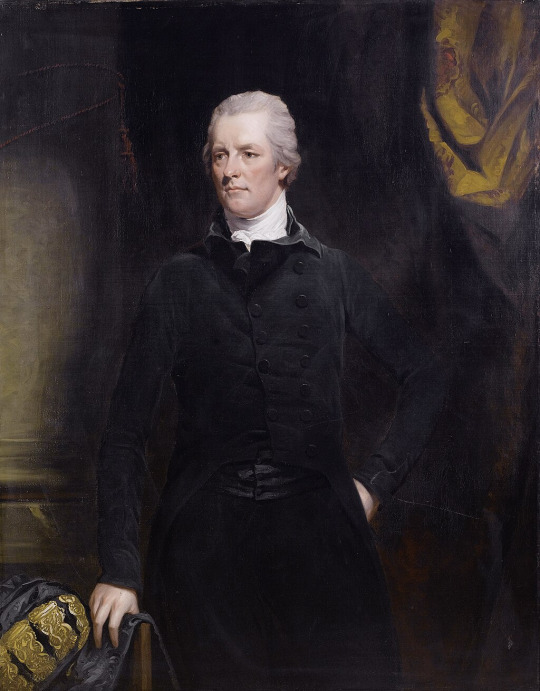
Pitt the Younger. Fought the Napoleonic Wars on the backs of the poor while violently suppressing any dissent with a police state. He passed the Treason Act of 1795 to criminalize dissent, the Seditious Meetings Act of the same year to criminalize public assemblies, spied on pretty much anyone who wasn't an arch-Tory, suspended the writ of habeus corpus, and passed the Combination Act of 1799 to criminalize trade unions. In a just world, would have died on a guilottine in Trafalgar Square.
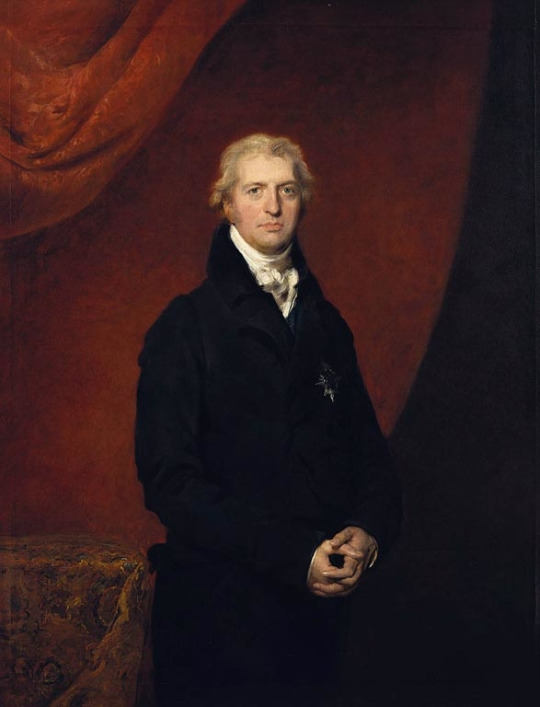
Lord Liverpool. In the wake of the Peterloo Massacre which he was absolutely responsible for, passed the Six Acts to allow the government to search people's houses for arms without a warrant, arrest and transport people for owning weapons or attending a meeting that was deemed to involve unlawful military drilling, reduced due process, shut down all public meetings that involved politics or religion, arrest and transport anyone who wrote anything that criticized the government or Christianity, and heavily tax and impose bonds on newspaper publishers. In a just world, the Cato Street Conspirators would have exercised better tradecraft and assassinated him and his entire government.
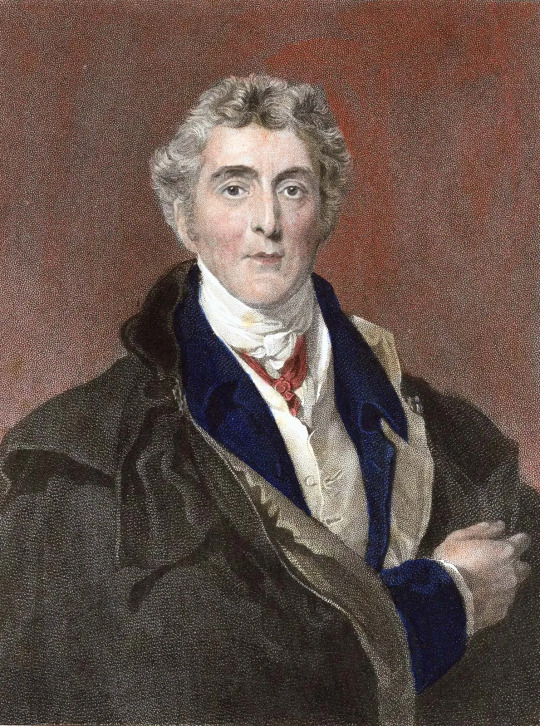
Arthur Wellesley, the Duke of Wellington. Followed up his victory in the Napoleonic Wars by fighting a war against the British people. Arch Tory bastard, adamantly opposed any political Reform that would enfranchise ordinary people, and opposed Jewish emancipation while supporting Catholic emancipation. To be honest, I wish the mob had torched Apsley House with him inside when they had the chance.
As for the runners-up?
Bonar Law, Stanley Baldwin, and Ramsay fucking MacDonald for dropping the Geddes Axe and then subjecting British workers to twenty years of crippling austerity and repression.
86 notes
·
View notes
Text
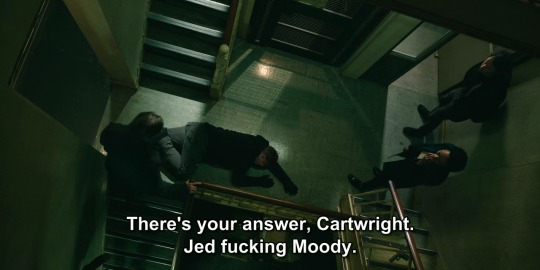
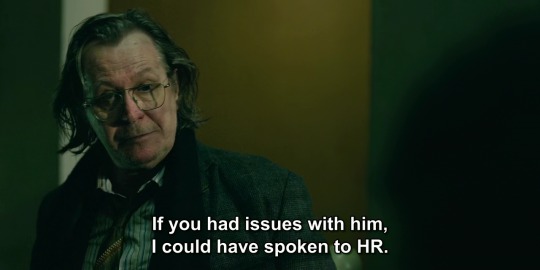
Impromptu HR meeting in the stairwell with the dead colleague at Slough House. 3-drink minimum.
14 notes
·
View notes
Text
Catherine x Jackson have no interaction in S1e3 Bad Tradecraft... so instead, today, I offer these...

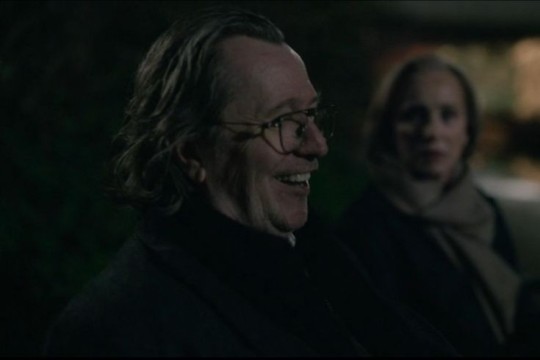
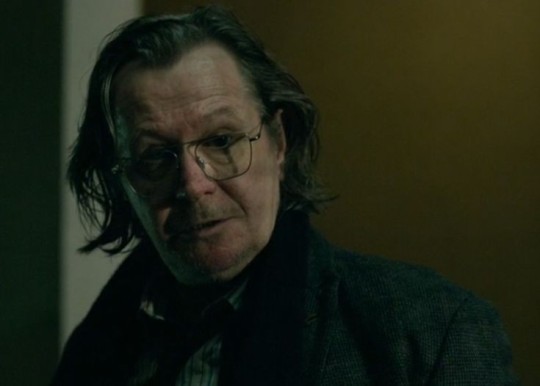
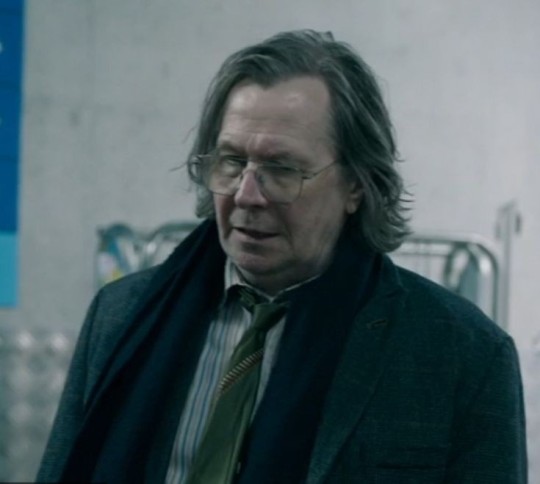
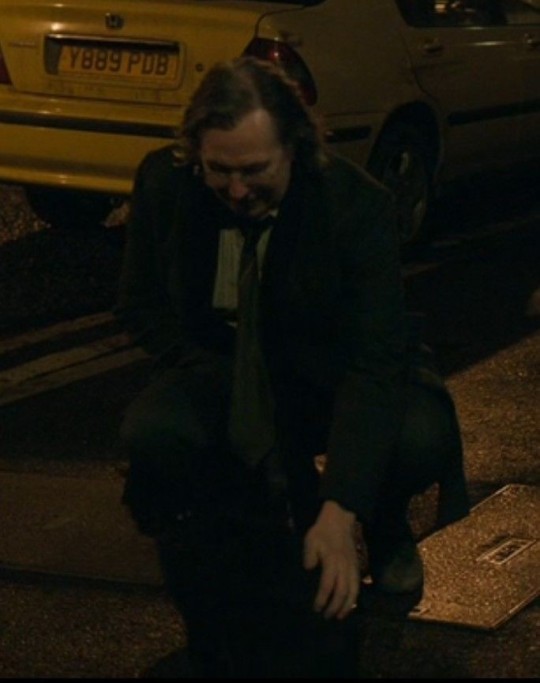
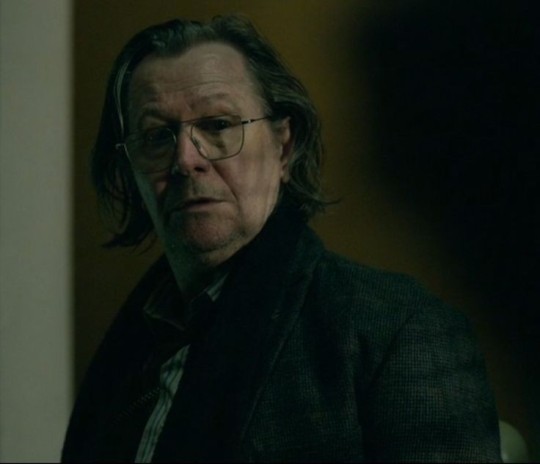
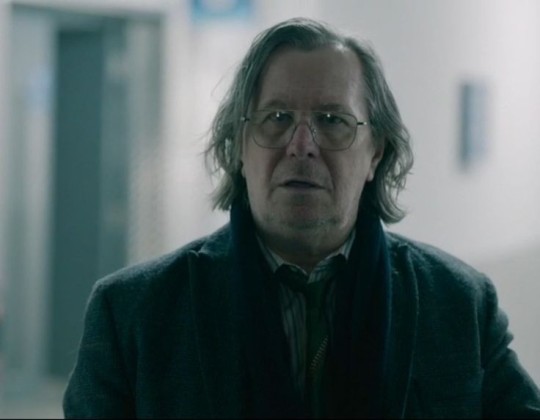
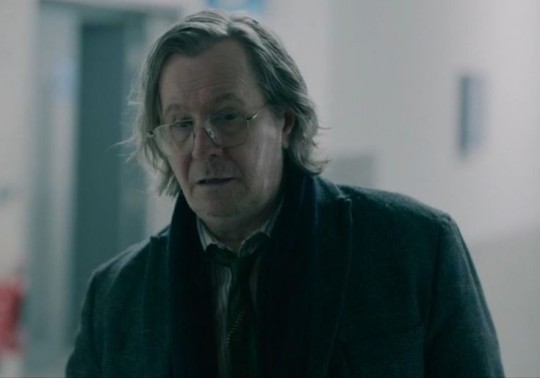
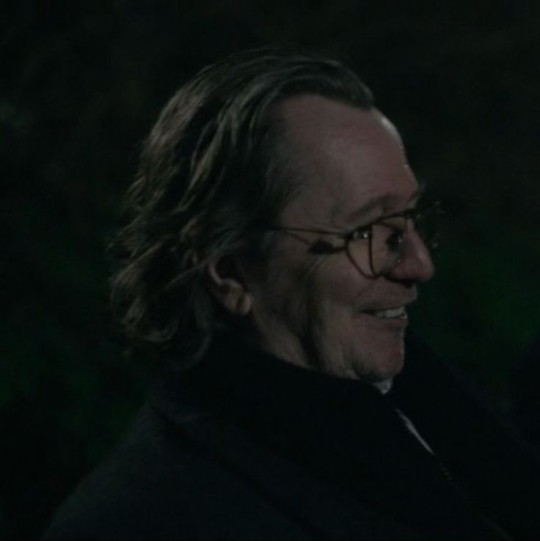
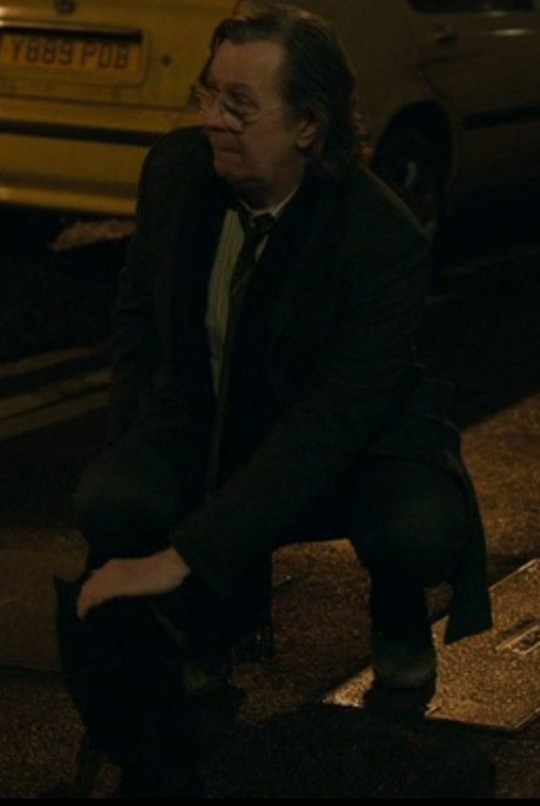
#gary oldman fanart#gary oldman#gary#jackson lamb#jacskon#jackson & catherine#jackson x catherine#catherine is the cutest#Catherine Standish#slow horses#slow horses s1#slow horses s1e3#bad tradecraft#s1e3 bad tradecraft#slough house series#slough house#slow horses cast#slow horses spoilers
12 notes
·
View notes
Text
The writer's strike and franchise fatigue: two heads of the same coin?
Context: I'm shamelessly reposting a comment on a popular webforum where someone posed the question "What's next for Star Wars?" that prompted a lot of discussion about the whats and whys of what's working, what isn't, and of course everyone's favorite hobby: performing yet another autopsy on the Sequel Trilogy. I declined to go there in favor of speculating on the production side.
Ultimately I think the future of Star Wars requires Disney to do what a lot of franchise owners have been resistant to doing for various reasons: allow their creative teams a wide latitude to fully develop their ideas without unnecessarily harsh deadlines tied to quarterly earnings reports. Now that isn't to say that projects can fail on their own merits.
I don't know for a fact that Book of Boba Fett was timid, awkward, and boring because the showrunners couldn't make a cut that worked with the time and resources allotted, but we were mostly all impressed with Rodrigues' work on Mando so we were cautiously optimistic that a Cool Gangster Drama with Boba Fett could be a thing. So what the hell happened? Solve that mystery and I think you ensure that Star Wars has a future.
Looking at another popular "Star" franchise, we see a lot of similar problems with uneven writing and what seems to be differing opinions both inside and outside the franchise as to what exactly it means for something to carry that name. What sort of stories can you tell? How do you tell them? Can you have a point of view character or does it always have to be ensemble? Can you deconstruct the setting only to reconstruct and reaffirm it in the finale without losing the fans?
What explains "bad" writing? Coercion by the studio? Writer inexperience? Showrunner inexperience? A failure to find the right balance between modernizing the storytelling of a franchise without it becoming illegible as part of that franchise or to cling so hard to fan service that it is afraid to experiment and becomes a less interesting and murkier Xerox of itself?
Something that I found fascinating in the discourse around the writer's strike is that the format of streaming TV with its short seasons has turned everyone involved in these productions into gig workers. Unless you're one of a half dozen showrunners who have helmed widely acclaimed franchises, modern tv has become severely siloed on the production side: writers have limited opportunities to learn directing, editing, and show running. They also have limited opportunities to see how their work translates to the screen when it lands in the hands of directors, actors, set decorators, and FX artists.
If you add up all of the live action Star Trek shows produced to date, you end up with 8 seasons of streaming that equal roughly 4 seasons of broadcast era TV. Which means that under the old paradigm, a traditional TV show would only now just be airing its second "good" season. Which, shockingly enough, maps very neatly to attitudes about Strange New Worlds and Picard Season 3, and to a lesser extent Discovery season 4.*
*To the extent it will ever be allowed to make a second impression, which is another seeming "problem" of the streaming era that needs addressing since any "failed" first season is very likely to result in a sub-franchise that is going to get cauterized and forgotten about given the era of a permissive financial environment for funding additional seasons and permitting a production to recover and learn from their mistakes is pretty much dead and gone.
Were I Disney, given these realities, I would probably fund 2 or 3 "stables" of Star Wars writers and production teams. One for light hearted action comedy, one for "serious drama," and a third for something more esoteric. Maybe a fourth for big budget tentpole films. Keep them employed and give them opportunities to develop their tradecraft.
Don't be so quick to slash and burn a dud, use failure as permission to experiment. If nobody cares about Book of Boba Fett anyway, why not take some risks and see if some writers who are claiming they can turn in a second season that can "fix" the first season by turning the stories that go nowhere or are halfhearted into the first chapters in more meaningful stories? People already tend to avoid series that have only one season anyway and become ever more likely to do so the more time passes without more seasons so you're just throwing away your investment by not trying to salvage it.
This is incidentally why I'm not antagonistic towards the prospect of trying to rehabilitate the Sequel Trilogy. The Prequels are poorly made but were rich in potential. That potential was not left on the table, it was exploited until we can no longer separate the Prequels as they originally stood from all of the tie in media that added depth and nuance to the setting and storybeats.
So were I Disney and I have all of these props and set pieces in storage doing me absolutely no good, then of course it will eventually be time to try to make the Sequel Trilogy good. Maybe do some Director's Cuts and then build out the universe to make it feel less claustrophobic and less overtly a bigger, louder, dumber rehash of the Original Trilogy.
#star trek#star wars#the mandalorian#book of boba fett#star wars sequel trilogy#star wars prequels#star trek discovery#star trek picard#writer's strike#disney
18 notes
·
View notes
Text



Slow Horses, S01E03 – Bad Tradecraft
#jacklowdenedit#jlowdenedit#slowhorsesedit#tvedit#appletvedit#jack lowden#river cartwright#slow horses#cinemapix#televisiongifs#userbbelcher#mine#userthing#adaptationsdaily
130 notes
·
View notes
Text

Snippets of a fic I'll never write: (1/X)
“You ever think of getting out?”
Lucas stays quiet so long that Rolf wishes he could take his question back, snatch it from the silence it fell into. Just dust it off and pretend he’d meant to let it slip from his grasp.
Then, finally, but so flat that it takes Rolf a few moments to register it as a question in return:
“To do what?”
Ah. He’s downed Jägermeisters with less bitterness than what's in that tone. There’s a dash of regret in there too, and a sprig of want: a bad cocktail that burns its way out of his friend's throat into the compressed quasi-question.
“Dunno. Anything. Everything.” Rolf leaves the rest unspoken - that the pay might be good, but there’s more to life than violence and bloodshed. He’s not sure Lucas would believe him anyway.
“Everything, huh?” Lucas doesn’t laugh, but Rolf hears the echo of a smile dancing like a blade’s edge around his words, and everything is alright. “And that’s why I always end up pulling you out of hospitals, prisons, pubs - one of these days it’ll be a morgue.”
“Don’t remember things happening quite like that, sir,” Rolf says easily. “ ‘sides, it’s called tradecraft. Reconnaissance.”
Lucas does laugh at that, quiet and reserved like he doesn't quite know how, but Rolf knows what he hears and it warms him more than the scorching desert sun. Then the smiles die, like everything else in this fucking place.
“Hostiles, corner building, south side.”
“I see them, 550 meters out. Wind zero. On you.”
2 notes
·
View notes
Text
It's important to note that this sort of behaviour is literally no shit *legally required* in the USA - possibly elsewhere, but I'm only familiar with the American law - due to a law regarding "fiduciary duty to shareholders". Basically, the law states that board members of publicly traded companies MUST prioritize share value over everything else. If Huggies didn't raise their prices when given the opportunity the board would *go to jail*.
"but sirkaid," you may be saying, "doesn't that mean that there's no reason for a company to ever be responsible?"
Yes. That's absolutely correct. As far as the law is concerned, the only people who matter are the investing class.
I'd have suggestions on what should be done about this, but posting about felonies online is bad tradecraft.

A LOT of "inflation" is actually corporations taking advantage of "inflation" to hide profiteering.
46K notes
·
View notes
Text
Modern Monsters for Modern Problems
In the last 10-15 years we've seen the rise of what has been called the gig economy. This came along with the promise of being a new way to fix your financial problems by just doing some small gigs on the side now and again. Or, hey, if you worked at it you might even be able to replace your full time job.
In truth, while I'm sure a few of the gig-based companies were founded by people that at least believed they had good intentions, in truth this has created a host of new problems. The people doing the job are classed as independent contractors and thus are responsible for handling their own taxes and insurance. They often use this to avoid workman's comp as well. The freelancers are not well vetted and the company does not take responsibility for crimes performed by the freelancers. Likewise, they will not take responsibility when crimes are committed against their freelancers.
I'm not the first person to make a game out of this new brand of faceless corporate abuse of the population. iHunt is already a TTRPG that handles this subject and one I've been meaning to pick up. Likewise, Phasmophobia and a small host of games based on its model have also used the gig-economy as a framing device for how they do things.
For Swipe-to-Slay, I decided to actually make the App itself part of the mystery. Perhaps it is well-intentioned, but it's definitely out-of-touch and there's some reason why the people running it don't want to meet their freelancers face-to-face.
Toward this end, I decided to have a mix of common people that have felt a bit forced into the monster hunting life due to the daily pressures of bills and survival alongside a professional monster-hunter who's a bit down on their luck and is monetizing their normal hunting. Alongside an oblivious fool and thinks this is all awesome.
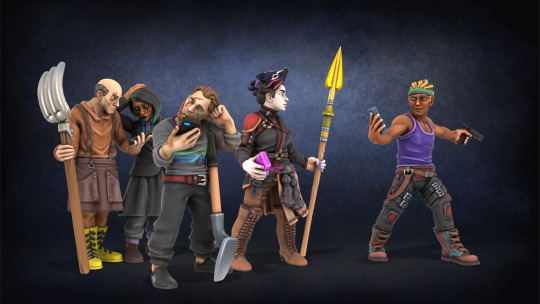
MON$TER APP - Swipe to Slay
Style: Can't Escape
The App
Where did each hunter learn about the app?
Courtney Mendez and her grandfather received a spam email and were desperate.
Grady Simmons thought it was an ARG.
Mariketh's heard rumors about the app from other hunters.
Willy Siegrich had it recommended by his husband and sister-in-law.
Why did they start?
Courtney and her grandfather need the money.
Grady thinks it's amazing fun and is a way to protect his neighborhood.
Mariketh was asked to investigate by her sect.
Willy Siegrich hasn't been able to get the app to stop sending jobs.
What are the clients like?
Skeptical and Disbelieving
Often Dead
Grateful and Appreciative
Two Good things about the App:
Good Pay
Strong Communication
Two Bad things about the App:
Intrusive job requests
Uncaring "support" staff
Who do you suspect is behind the app?
Greedy tech-bro
Odin
Core Traits
Team Enemy: Saunders Enterprises, a corporation seeking to collect and control the supernatural.
Team Ally: Frank Keep, a computer security specialist who has been digging into the app and has concerns.
Team Move: Thanks for the Rating
Team Assets
Never Offline: Smartphones or other devices can always connect to the app even when your phone has no bars or internet. This includes the community forum and support line.
Inventory: A big stockpile of mundane gear that might come in handy during a hunt.
Courtney Mendez - The Covenant
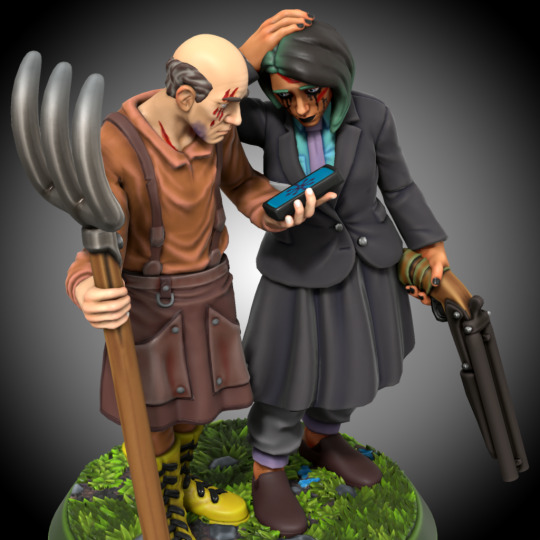
Look: A professionally dressed hispanic woman with green-highlights in her hair and mild gothic make-up. She's often seen working along side her grandfather Thomas Raleigh, a bald white man who dresses in rural work-clothes.
Charm -1
Cool +1
Sharp +2
Tough +1
Weird +0
Covenant
Watson
Her grandfather, a 65 year old farmer named Thomas Raleigh
Moves
Basic Weird Move: Tradecraft
Moves: Smash Cut, Who said I was alone?
Gear
Smartphone
Plentiful wardrobe of socially appropriate clothes
Shotgun (3-harm close messy loud)
History
Grady was there the first time Courtney encountered a monster. Neither of them were veterans at the time and they only barely survived the job.
She and her grandfather are related to Mariketh by blood, being his grand-niece and her second cousin.
When Willy approached her about the App, she reluctantly took him on a job with her and Grady.
Courtney was never a wildly successful lawyer. She lacked the charisma and social confidence to be an effective litigator and thus mostly worked in contract law. Among other things, she could get away with some goth-touches to her look here and there. She found herself disbarred recently over an apparent mistake with on of Grady's problems. She honestly doesn't remember making the mistake she was accused of. Courtney and her grandfather have taken to the app to try to keep his farm going against the creditors.
Grady Simmons - The Crooked

Look: A flashy young-man with too-blonde hair and rippling muscles. He dresses with an eye for looking impressive and doesn't think much about whether his look is practical or not.
Charm +2
Cool +2
Sharp +1
Tough +1
Weird -1
Heat
Grady pissed off a well-connected chop-shop owner by robbing his shop and taking one of the cars on a joyride that got it tracked down by the police.
He discovered the supernatural when he clicked through on the spam email that informed him about the App.
Moves
Basic Weird Move: Trust Your Gut
Background: Pickpocket
Moves: Driver, Deal with the Devil: Skill (1 year countdown)
Gear
9mm (2-harm close loud)
Baseball Bat (1-harm hand)
Submachine Gun (2-harm close area reload)
History
Mariketh is Grady's moral compass. She's never been afraid to call him out when he steps over the line. He deliberately sabotaged the relationship with her due to his issue with the devil deal. He suspects that if he comes clean about why he pushed her away, he'll ruin the remains of their friendship as well. Especially since she's a professional mystic.
Courtney used to help Grady with some legal advice, including recommending a litigator for his frequent court cases. He blames himself for her getting dis-barred. He tries to get her anything she and her grandfather need within his skills ability to grab.
Grady is finding himself repeating mistakes with regards to Willy. He's powerfully attracted to the man and like Mariketh, Willy is a deeply moral and kind person. Instead of going through the bother of sabotaging the relationship, he's just trying to keep it from getting started.
Grady is a trouble-maker that has a long history of ruining relationships and stirring up trouble with the cops and local criminals. It's amazing that he's not dead yet. This might have something to do with the deal he made that he's given up on solving. He didn't know what he was getting the problem fixed and instead just is doing what he can to be a problem for the worst people while keeping the best people at arms length.
Willy Seigrich - The Wronged

Look: A burly looking, bearded man who looks perpetually tired. He is generally calm and soft-spoken which makes his capacity for violence that much more disturbing.
Charm +1
Cool +0
Sharp +1
Tough +2
Weird -1
Loss
My Prey: Rilligan, a demon that his husband and sister-in-law took on a job to deal with.
At fault because he was in denial. He didn't think the app was serious.
Moves
Basic Weird Move: Warding
Moves: I Know My Prey, NEVER AGAIN, Safety First
Gear
Protective Gear (2-armour due to Safety First)
Rune enscribed Shovel (4-harm hand against Demons, 1-harm hand against other enemies, innocuous, useful)
Hunting Rifle (2-harm far loud)
9mm (2-harm close loud)
Birthday cards from his dead husband and sister-in-law.
History
He saved Grady's life when Grady was first getting into monster-hunting on the MON$TER App. A necromancer had set a trap and one of Grady's wards blocked the spell from taking hold.
Mariketh is younger than him, but helped him get started learning the ropes on fighting and magic. He's surpassed her in battle but is still lagging as a beginner on magic. The fact that she's partially not-human was surprising, but he's dealt with that.
Courtney used to handle his and his husband's legal issues until she got dis-barred. He respects her knowledge and expertise.
When he originally heard about the app, it sounded like a goofy video game thing. So, when his husband went off to try it out with his sister-in-law, he didn't really have any interest in the whole thing. It was the last time he saw them alive... or in a single piece. He's now looking into the app in hopes of figuring out who's putting this in the hands of unwitting people and maybe find the demon that killed his family along the way.
Mariketh - The Initiate

Look: A pale young woman with a serious expression often concealed behind a jet-black badger mask. She carries several talismans and golden spear.
Charm -1
Cool +1
Sharp +0
Tough +1
Weird +2
The Sect
Those Who Seek Peace
Good Traditions: Non-Human Integration, Like Family
Bad Traditions: Poor
Those Who Seek Peace are a group of inter-related humans and various spirits who make an effort to address the root causes of conflict between the human and inhuman. They've found that many of the root causes are down to socio-economic issues leaving them handling the symptoms and having difficulty gaining the traction they need to actually solve anything. They're a collection of old families, sure, but none of them have much money.
Moves
Basic Weird Move: Use Magic
Moves: Sect Move, That Old Black Magic, Ancient Fighting Arts, Mystic
Gear
Old-Fashioned Armour (1-armour)
Spear (2-harm hand close)
Silver Knife (1-harm hand silver)
Sniper Rifle (3-harm far)
History
Courtney Mendez is a lay member of her sect. Her mother has retired from hunting due to health reasons, but did pass on the information to the Sect. Courtney and Mariketh view each other as cousins.
Mariketh and Willy met while Willy was looking into magic. She helped him with the runes to permanently enchant his shovel for killing demons.
Grady is her ex-boyfriend. His recklessness and obliviousness eventually ruined the relationship. They still care about each other's well-being but the romance is truly dead. She is still mystified about how much he changed so suddenly. Like he just decided to be a jerk one day.
Mariketh is a mystic warrior from a long line of mystic warriors. There's never really many of them in any particular place, most of the family tends to go off to live mild and normal lives. But she's one of the set that sees it as a duty to try and protect good people, mortal and supernatural both, from the evils of the world. She was the last to join the app of the group, but after hearing about the others getting involved, she was already thinking about it. Being officially told by her sect to investigate the matter finished the matter.
Back the new books here:
#monster of the week#character creation#urban fantasy#urban horror#cosmic horror#tabletop#evil hat productions#rpg#roleplaying games#ttrpg#motw#Mike Sands#Marek Golonka#powered by the apocalypse#pbta#gig-economy
0 notes
Photo
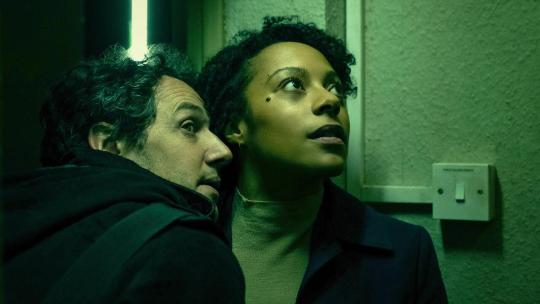
I just watched Slow Horses 1x03 "Bad Tradecraft"
0 notes